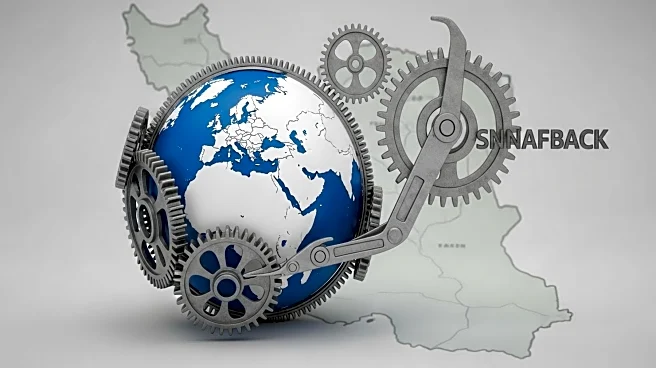What's Happening?
Britain, France, and Germany, collectively known as the E3, have triggered the snapback mechanism to reimpose United Nations sanctions on Iran. This decision follows accusations that Iran has violated the 2015 nuclear deal, which aimed to prevent the development of nuclear weapons. The E3's move comes after failed negotiations with Iran, which has been enriching uranium to levels close to weapons-grade. The snapback mechanism allows for the restoration of sanctions that were lifted under the 2015 accord. The E3 hopes Iran will engage diplomatically to avoid further sanctions, but Iran has warned of a harsh response if sanctions are reinstated.
Why It's Important?
The reimposition of sanctions on Iran could have significant implications for international relations and global security. It may further isolate Iran economically and politically, exacerbating internal divisions between hardliners and moderates within the country. The sanctions could impact Iran's financial, banking, hydrocarbons, and defense sectors, potentially destabilizing its economy. The E3's decision underscores the ongoing challenges in preventing nuclear proliferation and maintaining diplomatic solutions. The situation also highlights the complexities of international agreements and the consequences of non-compliance.
What's Next?
The E3 has initiated a 30-day process during which they hope to resolve the issue diplomatically. Iran's response to the snapback mechanism will be crucial in determining the next steps. If Iran engages in talks and allows full inspections by the International Atomic Energy Agency, there may be a chance to defer the sanctions. However, if Iran remains defiant, the sanctions will likely be reinstated, leading to increased tensions and potential retaliatory measures from Iran.









